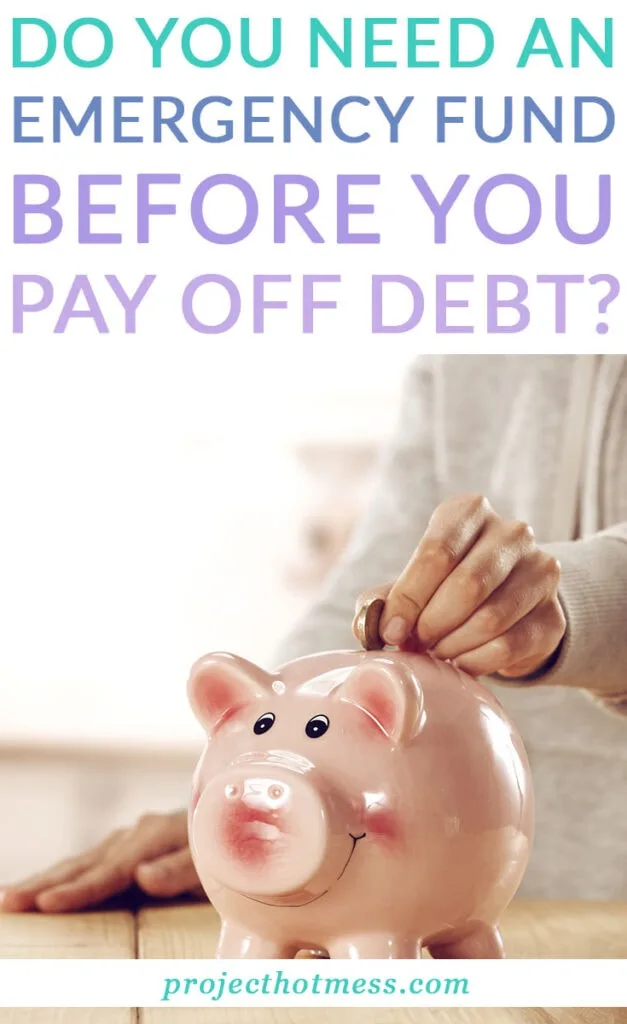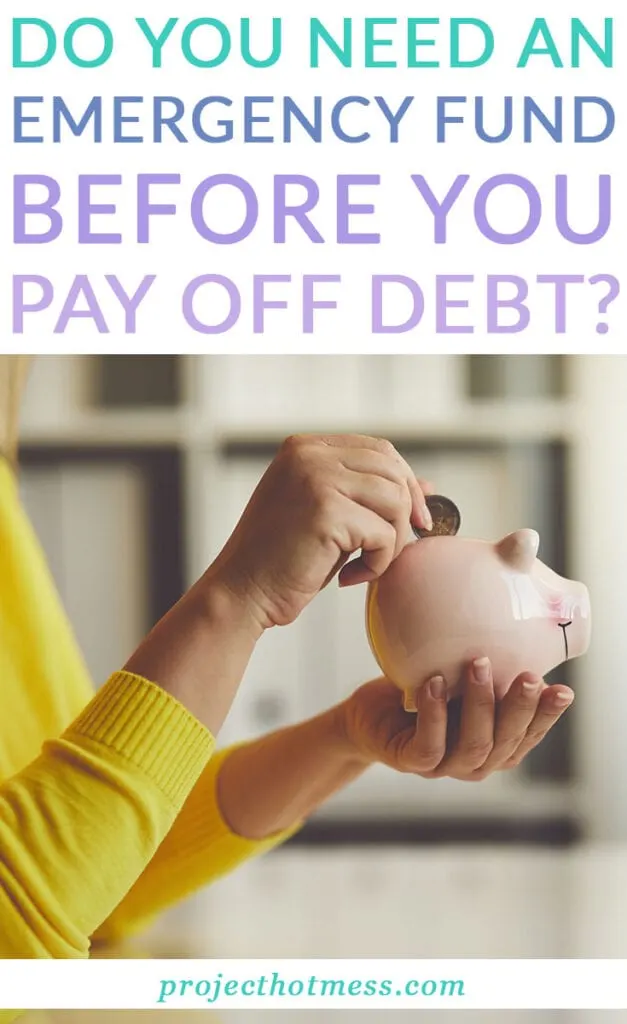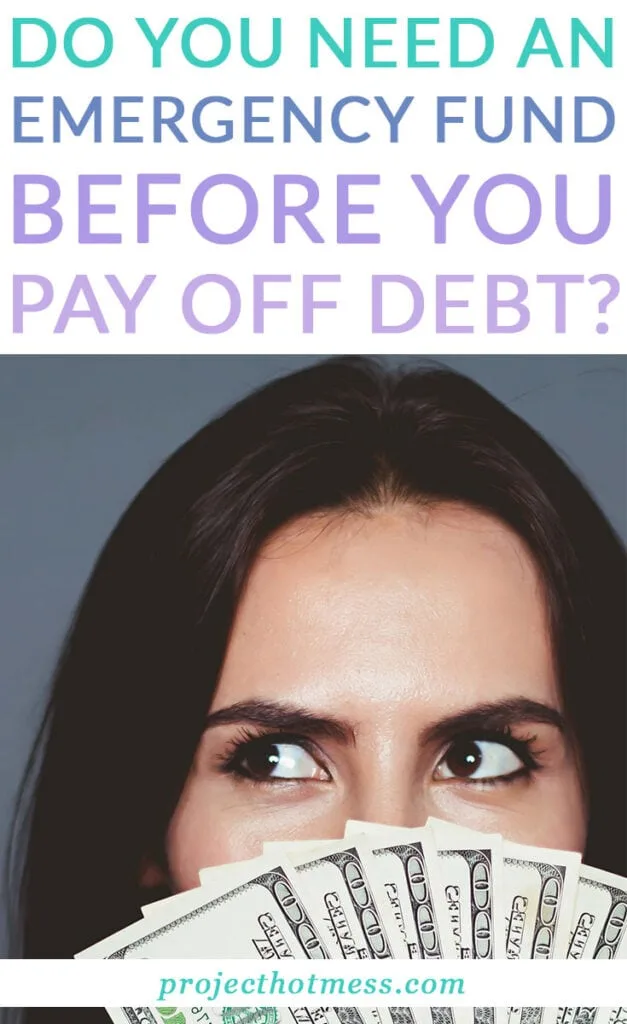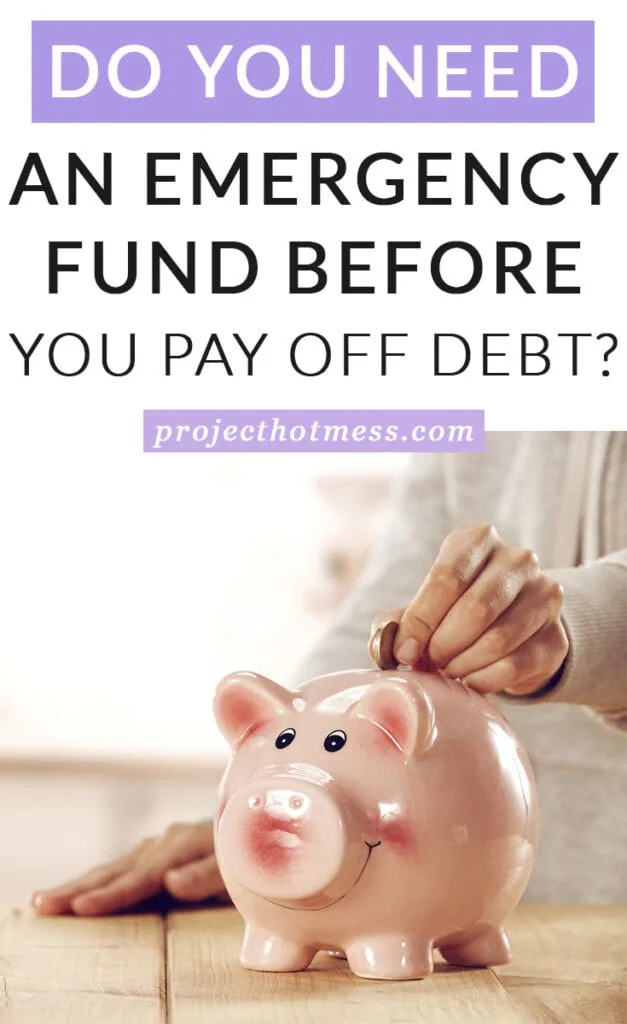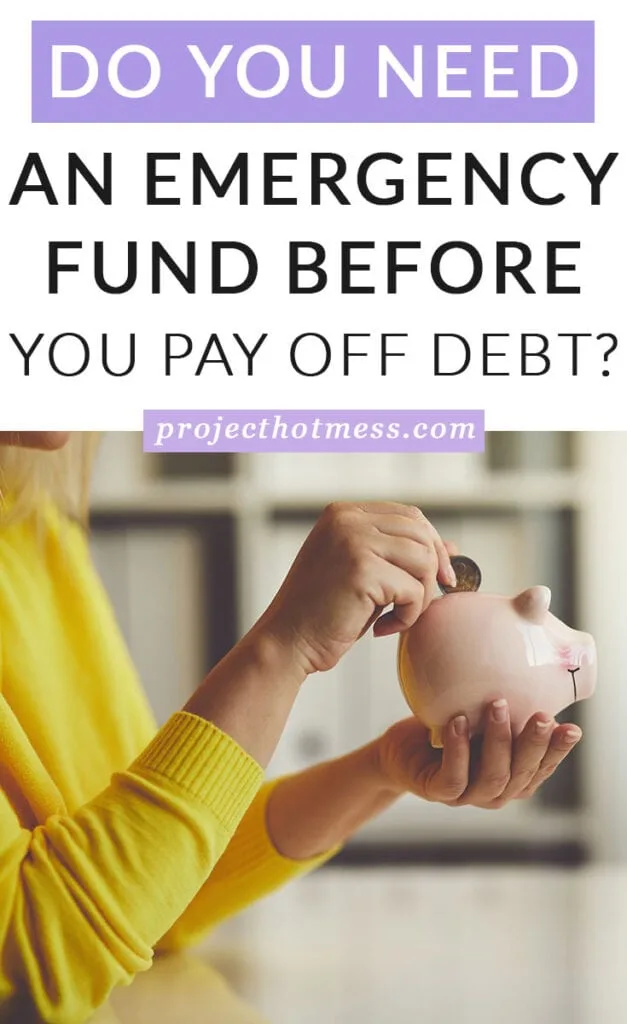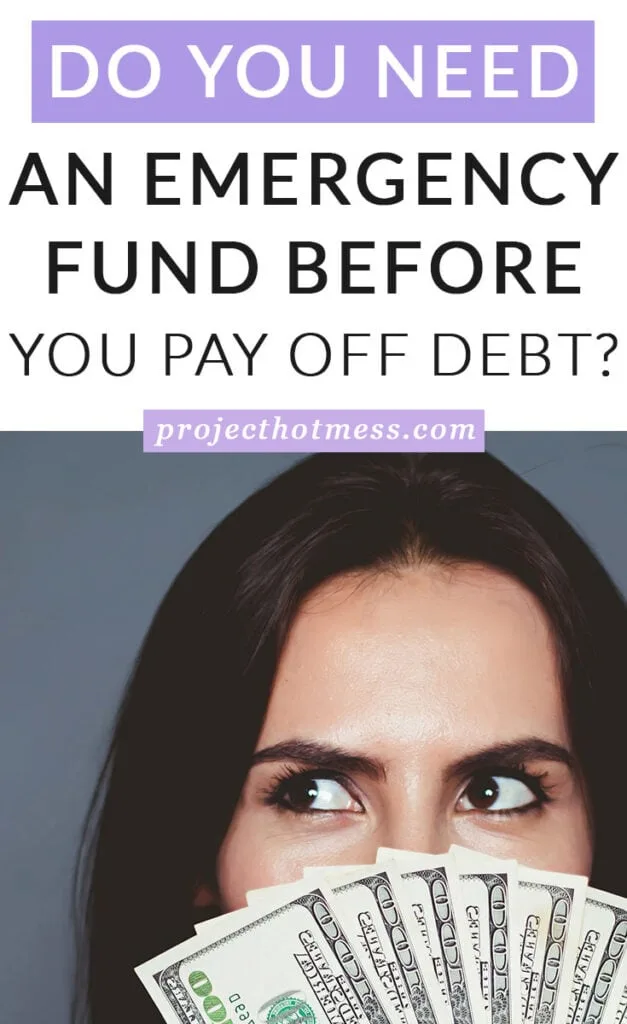Whenever I hear people talking about their emergency fund, it always ends up with the same question: do you need an emergency fund before you pay off debt? After all, we say time and time again how important it is for you to focus on paying down your debt, and reducing the cost of your debt, so it seems only logical you’d put every cent towards it. Right?
Not quite.
Here’s where people get stuck and confused, which is totally understandable. First of all, we need to know what an emergency fund is (and also, what an emergency fund isn’t).

What Is An Emergency Fund
Put simply, an emergency fund is a chunk of money you have reserved for emergency situations.
The idea is that you create a separate account (it’s better to have in a bank account than as cash so you can have access to it if you need in an emergency) and you put a set amount of money in that account to cover you for emergency situations.
I always suggest having $1000 in there to start as this is usually enough money to pay for most types of emergencies should they pop up.
So what is an emergency fund really used for?
It’s to pay your co-payment if you have to do an emergency trip to the hospital. It’s to pay your insurance excess if your car breaks down. It’s to pay for a new windshield if a rock flicks up and smashes it while you’re driving, it’s to pay for emergency flights to go to your Great Aunt Maude’s funeral (sorry Great Aunt Maude).
It’s for the things you cannot predict.
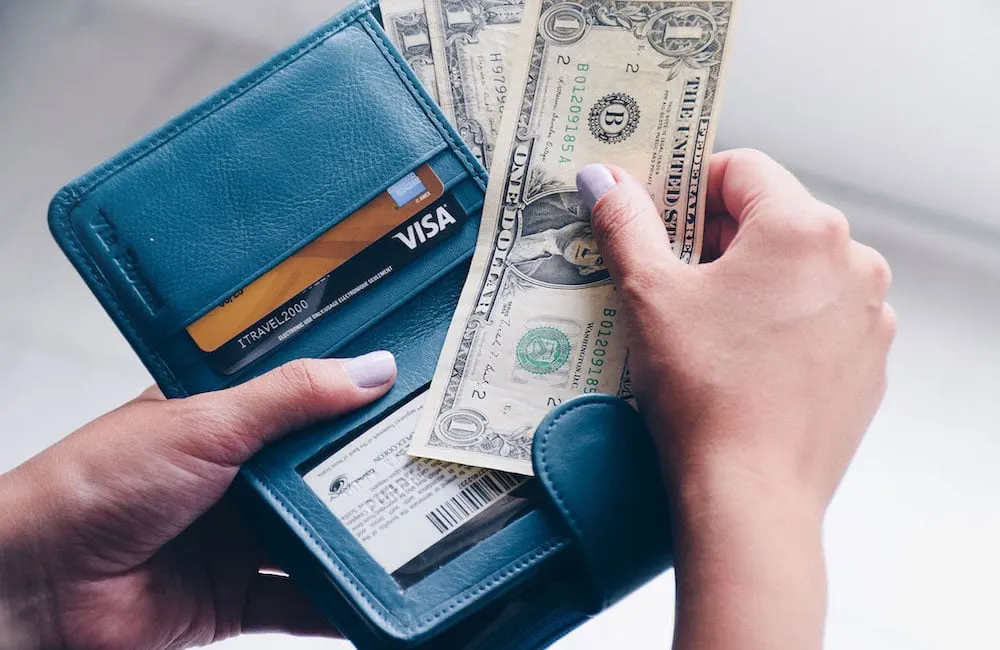
What An Emergency Fund IS NOT
Many people have different ideas of what their emergency fund is or what it can be used for. But it’s not really overly complex. It should be for emergencies only.
An emergency fund IS NOT your credit card.
An emergency fund IS NOT for the upcoming sales.
An emergency fund IS NOT for paying your regular bills.
An emergency fund IS NOT used to ‘treat yo’self’.
An emergency fund IS NOT to be used for anything other than emergency situations.
This means it’s not to be used to pay for something you’ve known about in advance. It’s not to be used to buy things you want, or go on holidays, or anything like that.
When it comes to your bills, I can understand if you get an abhorrently large bill you weren’t expecting, then your emergency fund can certainly come in handy for that (because not paying your bill is even worse).
But for your regular bills, you should be automating the payments of those and knowing what’s coming up and when anyway.

Why Do You Need An Emergency Fund
One of the questions I get asked a lot is why you need an emergency fund, especially if you manage your money well, or if you have savings. Or even if you don’t, and people ask why you need an emergency fund at all.
The answer is pretty simple.
Because life happens.
Things happen we cannot predict and we cannot plan for (regardless of how much my Type A personality doesn’t like this). Your emergency fund is your safety net.
I never realised how much stress it could relieve by having an emergency fund. By knowing that if the proverbial shit hit the fan, I had money dedicated to helping me get through that situation.
Your savings account shouldn’t be used as your emergency fund either. Because you don’t want to be taking money from your savings as it can ruin the momentum you have going.
Having a separate emergency fund helps keep things clean and organised, and helps you keep your finances straight in your mind and in your accounts too. You have a set account with dedicated funds for emergencies that doesn’t get touched until there is an emergency.

Why You Need An Emergency Fund BEFORE You Pay Off Debt
So here’s the answer: you absolutely need an emergency fund before working towards paying off your debt.
While I know it can be frustrating because you just want to get your debt paid off and gone, having an emergency fund set up first is going to alleviate a lot of stress and it’s going to help you focus on your debt paydown, making it less likely that you’ll be derailed from your financial goals if an emergency was to arise.
It doesn’t take as long to build up an emergency fund fast as what it does to pay down your debt. And having that emergency account there can save your behind if things get a bit crazy.
There are so many ways you can go about creating an emergency fund and getting that $1000 in there quickly so you can move on to paying off your debt.
Regardless of how you do it, or how long it takes you to do it, creating an emergency fund should be your number 1 priority before you start paying off your debt.

What Do I Do With My Emergency Fund When My Debt Is Paid Off?
So you’ve paid off all your debt! Woohoo! Living the debt-free life is bloody awesome. But what now? Do you still need your emergency fund?
Absolutely.
The next step you’ll be wanting to take is to start building up your wealth and investing, but before you do that, you should start building up a bit heftier of an emergency fund.
Everyone has different ideas of how much they want or need in their emergency fund, but I try to recommend at least 3 months worth of living expenses covered before you start investing.
So what does this look like?
If it costs you $3000 a month in expenses (all utilities, food, activities, anything that you spend money on in a month), then you’ll want to have $9000 in your emergency fund.
You can build it up to more if you’d like, but this is where you start to shift from having ‘just in case’ money, to real financial freedom.
Knowing that if you lost your job, or quit your job, or had to stop working, you’ll be fine for a few months (at least) financially is huge.
This is where you can really start to see the power of an emergency fund.
When we start to manage our money and make it work for us, it can be so exciting. You are in control of your money!
So when it comes to choosing whether or not you should create an emergency fund first, or pay off debt first, you should always choose an emergency fund. It will help you achieve your financial goals faster and help you feel more in control of your money.


